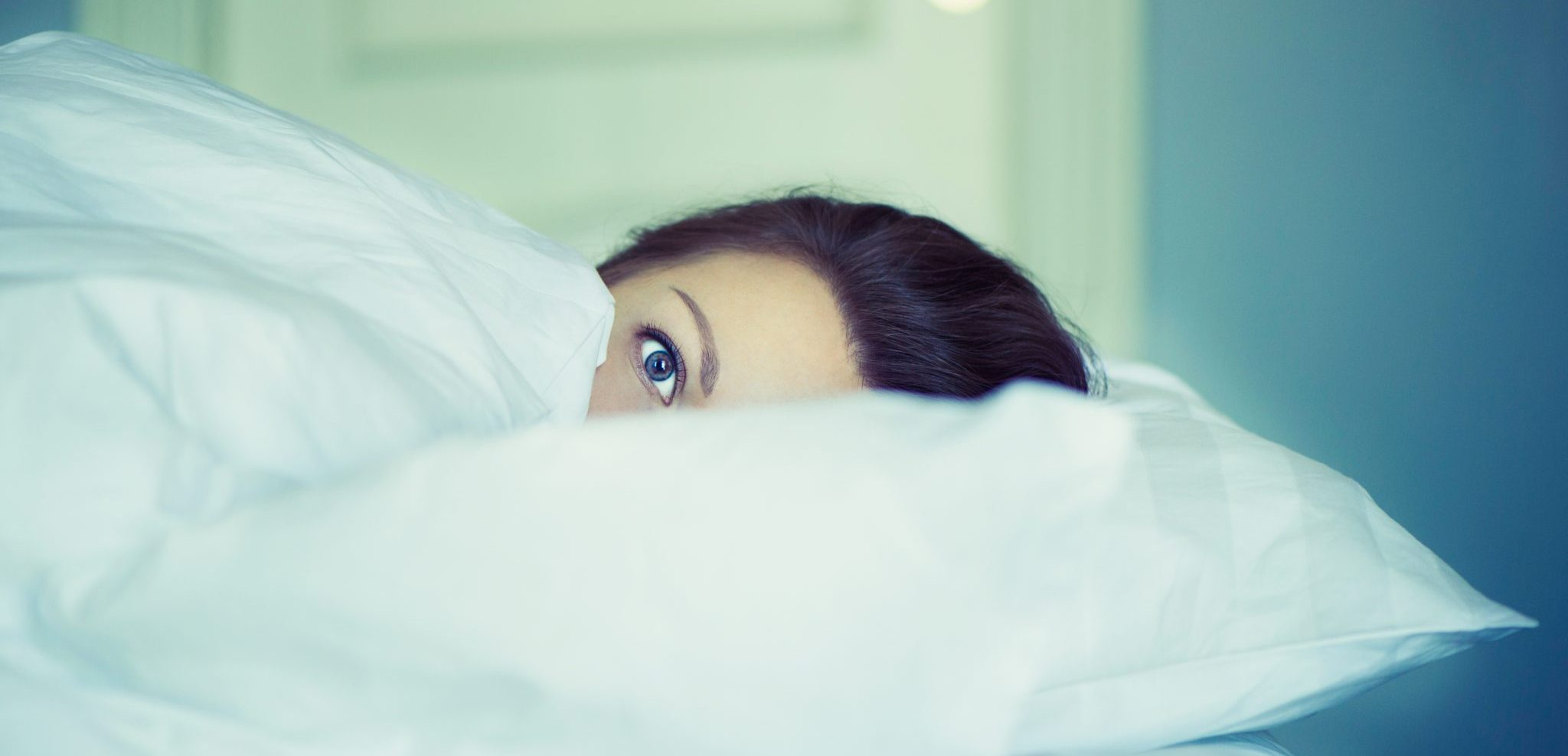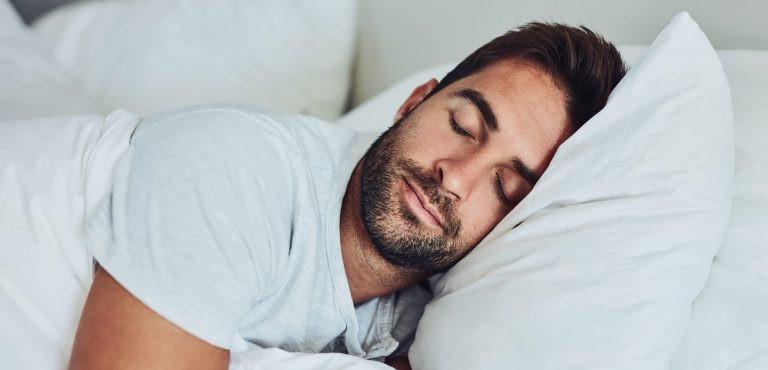Most of us love heading to bed. It’s that quiet time at the end of the day where you get to simply switch off and drift into the land of pleasant nod. But for an unlucky few, the fear of sleep is a reality and a frightening one at that. It’s known as somniphobia (sleep phobia) and could be causing you more issues than you realize.
That time you spend in a dreamland isn’t just a little time off; it is an essential bodily process. It helps heal your body and prepare it for the next day. Without a healthy amount of shut-eye, you could be left with some pretty unpleasant side effects that go beyond a little early morning grogginess. Too little nap time can lead to an increased risk of heart disease, diabetes, high blood pressure, and stroke if left unchecked in the long-term.
If you have problems getting in that nighttime slumber, you’re not alone. In the US, it’s estimated that between 50-70 million people have trouble sleeping and sleep phobia is one of a number of sleep-related disorders, including insomnia, hypersomnia, narcolepsy and more, plaguing the population.
Before you lose any more nights to staring at the ceiling, we’ll help you understand more about what may be causing your issues and, more importantly, what you can do about it.
Do you (or a loved one) have sleep phobia?
You might think a fear of falling asleep might be easy to recognize. Images of toddlers screaming, “but I don’t want to! I’m scared!” ring loud and clear. But for older children, adolescents, and adults, it’s not so straightforward.
You might have somniphobia if you:
- Become more anxious the closer it gets to bedtime
- Do anything you can (procrastinate) to avoid hitting the hay
- Start having panic attacks in the evening
- Are unusually focused on and worried about sleep
There are also some physical symptoms to look out for:
- Your rest has become disturbed, and you are more irritable than usual
- During the day, your brain is “fuzzy,” and you have difficulty concentrating, but at night, it’s like you’re on high alert
- You feel nausea in your stomach, perhaps getting worse closer to bedtime
- You experience tightness in your chest like you can’t breathe
If you think a loved one is scared to go to sleep but aren’t saying anything, here’s what to watch out for:
- You hear movements from their room in the middle of the night
- They are always the last one to go to bed
- They constantly feel tired and lethargic
- They may complain of feeling sick
- Children and adolescents may throw tantrums or use avoidance techniques
- Or tell tall tales
What causes the fear?
Like many night time disorders, somniphobia has many potential causes, and there may be more than one. Let’s take a look at some of the most common.
Chronic and vivid nightmares
We all experience bad dreams once in a while, but chronic and vivid nightmares are horses of an entirely different color. Chronic nightmares occur almost every time you go for a little shut-eye, you might experience the same nerve-racking scenarios over and over again, making sleep a not so inviting concept. Add that to vivid nightmare, those that seem so real, as if you were living them, and it’s no wonder you’re tossing and turning.
Anxiety
Although those with anxiety disorders may experience insomnia, it’s rare, but not unheard of, that your nighttime rest itself is causing your wakefulness. Perhaps you’re worried about losing control – talking, walking, etc. when you’re out for the count – or something deeper is at play, and you have misplaced your anxiety to your nighttime regime.
Sleep disorders
Somniphobia doesn’t just exist in a bubble; the reason you are afraid to fall asleep might just be based on what happens during those restful hours. Sleep apnea is one condition that causes issues with breathing, and this may leave you feeling worried and unable to doze off.
Cultural influences
Parasomnias, such as sleep paralysis, confusional arousal disorders, and others, have roots in medicine, due to the transition between REM sleep (wherein muscles are paralyzed) and wakefulness. However, before this was discovered, over the centuries, cultures have added their own twist on the phenomenon, such as demons sitting on the chest and other horrid nightmarish scenarios. Although you might not be a big believer in the paranormal, it could be in the back of your mind, influencing your actions.
Previous trauma
Fear is often formed without our full knowledge or consent, a dog bite in early childhood, even if long forgotten, can leave us with a lifelong unease. The same goes for your sleep; if you have addition associations, no matter how insignificant or significant they may seem to you, this could be the root cause of your problem. For example, the death of a relative you loved deeply while you were having a lie-down, an assault, or something else entirely.
How to beat somniphobia
Want to sleep like a baby again? Don’t despair; your dreams of a peaceful night’s rest are not a fairytale. But, like any quest, it’s going to take a little hard work.
1. Establish why this is happening
You wouldn’t take antibiotics without establishing just what is making you sick, would you? Treat somniphobia the same way. Try to think back to where the problems started and where your relationship with shut-eye went wrong. From there you can help your doctor establish the best course of treatment and finally put those nighttime woes to bed.
2. Seek professional help
Sleep is a vital part of life, and you need to do something about the issues you are experiencing. Contacting your healthcare provider is an excellent place to start. They will be able to refer you to a specialist who is experienced in somni-disorders and can help set you straight – whether this means counseling, medication, CBT, or a combination.
3. Practice good sleep hygiene
While there’s no excuse to skip step 2, while you’re waiting there’s no harm in getting your schedule in order. Cut caffeine out long before bed (that can mean after lunch by the way) so by the time evening rolls around, you’re feeling ready. Instead, try herbal teas, and closer to bedtime, perhaps even chamomile or valerian tea. Set a time you want to go to bed, get yourself ready – curtains closed, pajamas on, teeth brushed. Now settle in, read a book, or do some other relaxing activity that helps you wind down. Forget about your phone or any other screen; this will only keep you awake.
If you are experiencing panic attacks or anxiety, try some relaxation and breathing techniques to help bring your body to calm.
4. Relax, in general
Going night-night isn’t just the hours before bed, if you’re tightly-wound or anxious in general, it’s no wonder this is influencing your sleep. Try some daytime relaxation and lower your overall level of anxiety before tackling the more tricky stuff.
We hope this helped you understand a little more about sleep phobia, if you suffer from somniphobia or another disorder, we highly recommend you contact your doctor to help you get your routine back in order.





